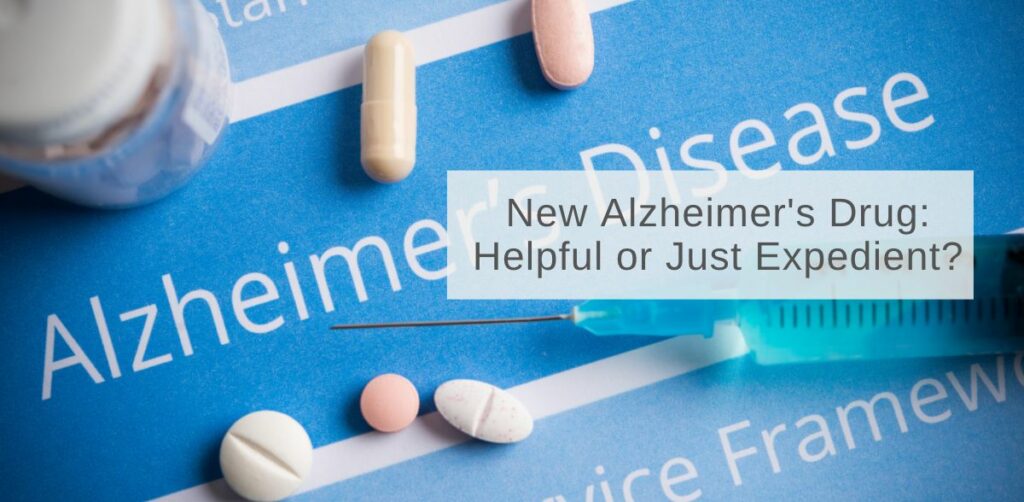Nearly four months ago I wrote a blog titled ‘Alzheimer’s – Have we been approaching it all wrong?,’ the article discussed the urgency to understand this debilitating disease, and the growing notion that the amyloid cascade hypothesis, which states that the build-up of amyloid-beta peptide plaques is the first step in AD, is the wrong hypothesis.
Despite this, on June 7th, the FDA approved the drug Aducanumab, the first new treatment for AD in almost twenty years which operates under the amyloid cascade hypothesis, working to reduce plaques. Since the announcement of Aducanumab’s approval, however, controversy surrounding its approval has only grown, including the resignation of three members of the FDA’s advisory committee (Jimenez, 2021). These members have pointed to the almost unanimous vote against the drug’s approval as concerning, with one stating that the authorisation has “made a mockery of the committee’s consultative process” (McGinley, 2021).
In Joel Perlmutter’s resignation letter he voiced his “disappointment” in the process, and also addressed the drug itself. Notably, Perlmutter raised alarm at the decision to focus on amyloid-beta plaques, saying that this is not only a problem of an ineffective drug, but could derail future research into AD treatments.
There is insufficient evidence that A-beta clearance predicts clinical benefit…this is a major problem
– Joel Perlmutter, professor of neurology and former FDA neurological drug advisory committee member
There is another problem with this new AD drug therapy: the price. While Biogen, the drug company that produces Aducanumab, has set the price at $56,000 a year, the drug pricing watchdog ICER said a more reasonable price tag would range from $2,500-8,300. It’s unclear how Medicare or private insurance would cover the drug, with some speculating insured patients would still have to pay around 20% out of pocket. This would further raise premiums for millions of adults, many of whom haven’t budgeted for the stark rise in healthcare costs throughout their lifetimes (Foley, Lim & Roubein, 2021).
In response to this need for identifying patients who specifically have amyloid depositions, some researchers have noted that there is a push to look at other types of tests, such as blood tests, but tests such as these are still years from being usable. These alternative tests for amyloid deposition also brings us back the concern that amyloid plaques are not the main issue in AD. As a result, the research being funneled into these tests, and the new drug itself, is taking valuable resources away from looking into other aspects of AD.
So the FDA has, for expediency’s sake, bought into the amyloid hypothesis although every single attempt to translate that into a beneficial clinical effect has failed. I really, really don’t like the precedent that this sets: what doesn’t get approved, now?
Despite the controversy that this new drug has spurred among medical experts, people with AD and their families have been clear – they want the drug. Michele Hall, who was diagnosed with AD last year at 53 years old explained that to her, the drug is hope. “When you get that diagnosis, you really wake up every morning and go ‘Here I am, it’s ticking away and I’m just waiting,'” she said. “Well, now you have something to look forward to” (The Associated Press, 2021). Similarly, the Alzheimer’s Association released a statement in support of the new therapy, stating that, “the first drug in a category invigorates the field, increases investments in new treatments and encourages greater innovation” (Alzheimer’s Association, 2021).
Whether or not Aducanumab is the breakthrough drug that is needed, the Alzheimer’s Association is right to point out that its approval will be beneficial, as it has been on the forefront of conversations in the past few months. This increased awareness will certainly lead to more donations to AD organizations for patient support and research, and at the bare minimum it is providing patients and their families hope.
Unleash the potential of drug develpment with our comprehensive drug discovery and develpment services. Reach out to us now and expedite the development of life-changing treatments.
References
- Census Bureau, (2020). Older Americans Month: May 2021. https://www.census.gov/newsroom/stories/older-americans-month.html
- James, Julia (2010). Why drug development is time consuming and expensive (hint: it’s hard). Scope, published by Stanford Medicine. https://scopeblog.stanford.edu/2010/07/21/mochly_rosen_lecture/
- Ogbru, Omudhome (2020). Why Drugs Cost So Much. MedicineNet. https://www.medicinenet.com/drugs_why_drugs_cost_so_much/views.htm
- Peterson, Peter G. (2020). Why are Americans Paying More For Healthcare? https://www.pgpf.org/blog/2020/04/why-are-americans-paying-more-for-healthcare
- Rowe, Sebastian (2020). Modern Drug Discovery: Why is the drug development pipeline full of expensive failures? SITN (Science in the News: a Graduate Student Group at the Harvard Graduate School of the Arts and Sciences). https://sitn.hms.harvard.edu/flash/2020/modern-drug-discovery-why-is-the-drug-development-pipeline-full-of-expensive-failures/#
- Vitale, James (2019). Animal Models in Drug Discovery. Taconic. https://www.taconic.com/taconic-insights/quality/animal-models-drug-discovery.html#footnote
- Wilson-Sanders, S.E. (2011). Invertebrate Models for Biomedical Research, Testing, and Education, ILAR Journal, 52 (2) 126-152, https://doi.org/10.1093/ilar.52.2.126



